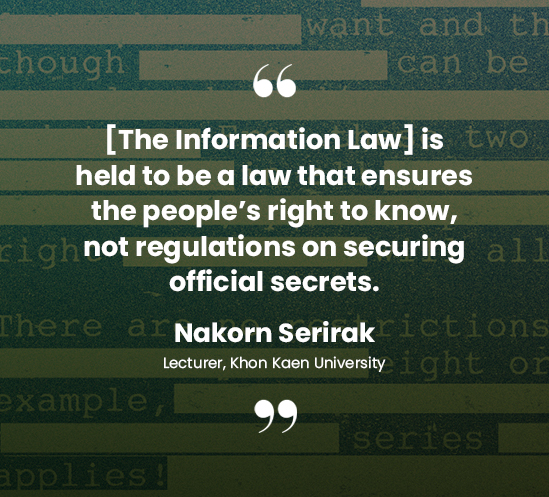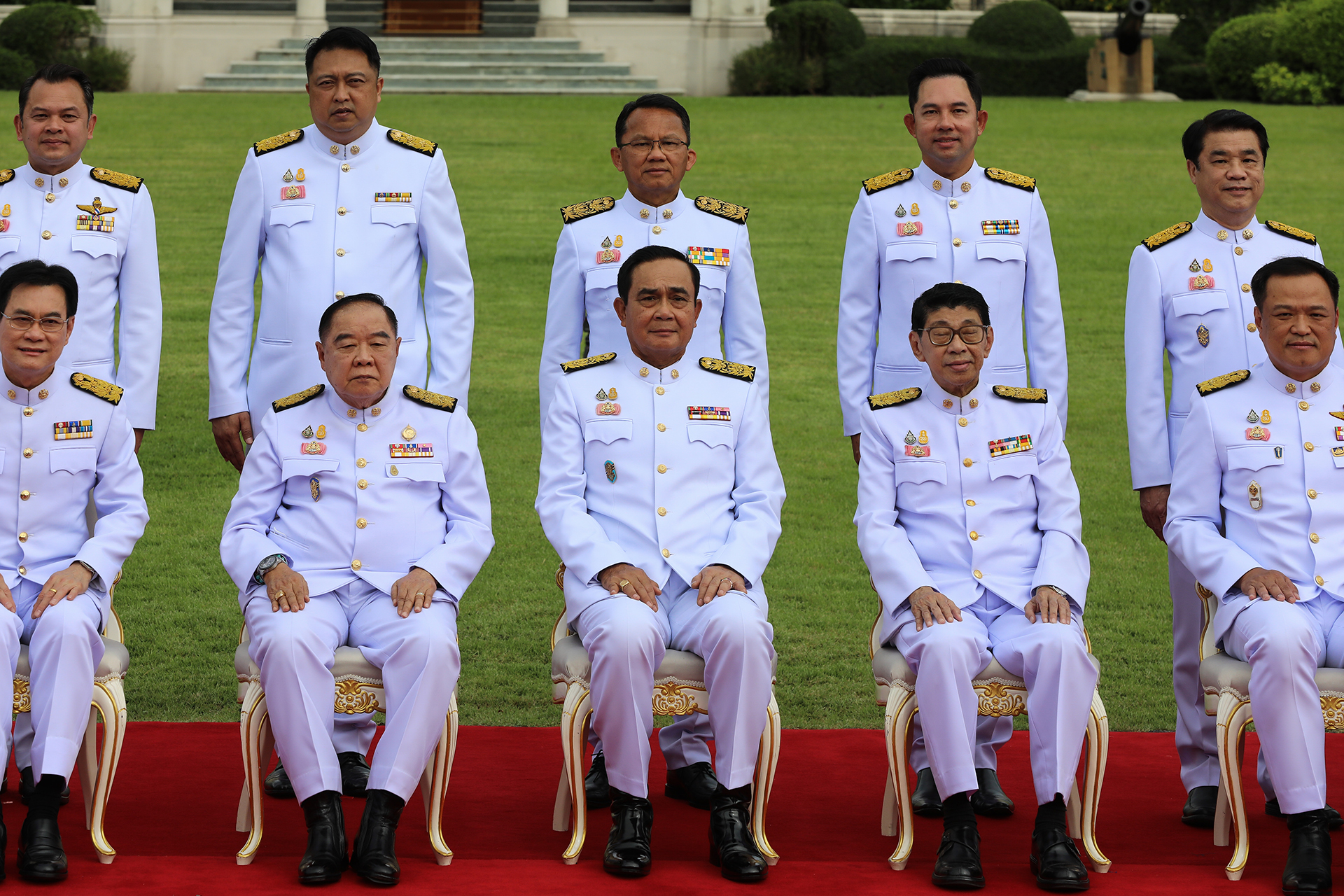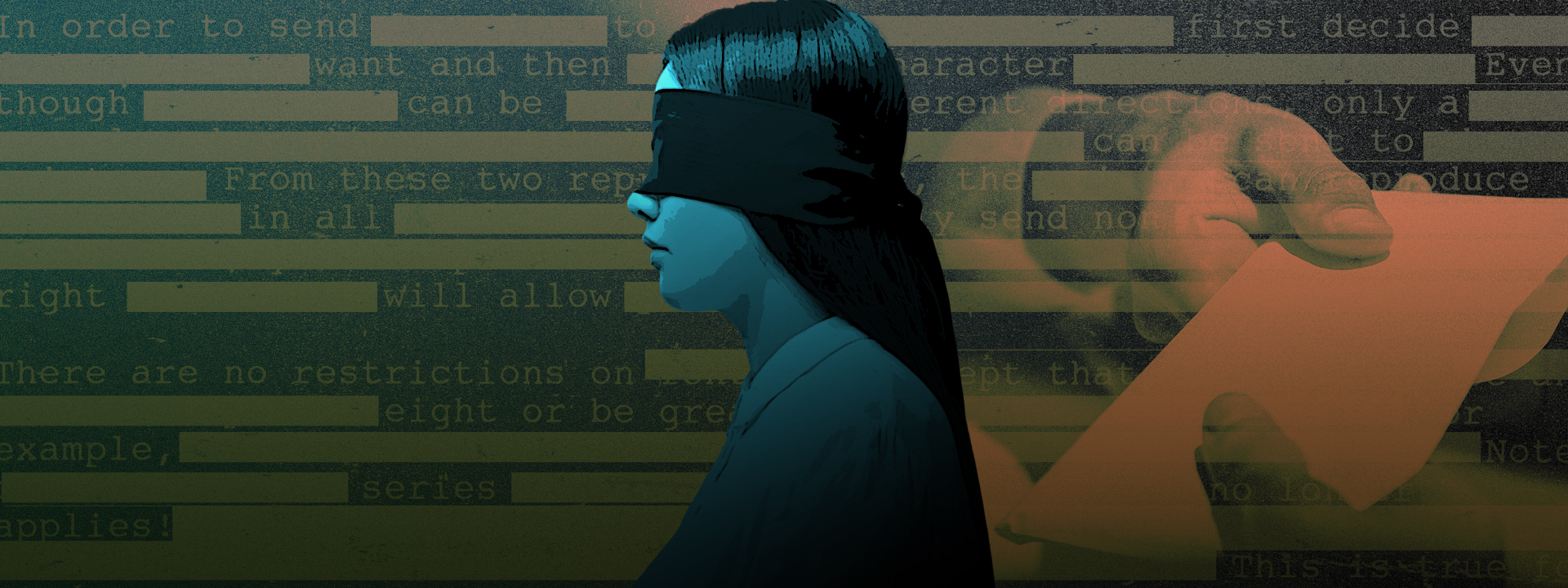In 2018, one of Thailand’s highest-ranking officials found himself in the middle of a swirling storm of controversy. Then the country’s Minister of Defense, General Prawit Wongsuwan invited scandal when he was spotted wearing a Patek Philippe watch.
At the time, Pongpiphat Banchanont, now a senior editor at The MATTER, was hot on the heels of Wongsuwan. Banchanont is a veteran document-hunter and is known for his investigative work. Sniffing out and chasing down corruption along even the faintest of paper trails is his specialty. The Official Information Act was a staple in his process, and he often used it to bring to the surface key paperwork that people in power typically want buried.
But even then, some three years ago, the Act was already easy to sidestep. In response to his request for information on Wongsuwan’s luxury watches, the National Anti-Corruption Commission (NACC) led him through a winding road of rejections and delays, only to eventually present him with a blank piece of paper.
Earlier this year, Thailand’s Cabinet approved a major amendment to the Act, ostensibly to plug some holes in the 24-year-old legislation. For instance, Banchanont said that the draft requires that all requests for information be processed within 30 days. Now, he says, he won’t have to wait indefinitely for an answer, like he used to, when he files a request for public documents.
But these ostensible fixes introduced an even larger loophole in the law that will allow authorities more leeway not to disclose information to the public and criminalize disclosure, making rejections much more likely.
When he saw the draft amendments, Banchanont said it would be harder for journalists like him to get any information.

The Official Information Act
Introduced in 1997, the Official Information Act B.E. 2540 was intended to be the cornerstone of the people’s right to access state information. In over two decades, it has changed the authorities’ attitude regarding official information, promoting other ways of treating it, instead of just keeping it secret.
Under the current rules, authorities are required to make a wide range of information available to the public upon request. This includes Cabinet resolutions, the structure of state agencies, policies and regulations, budgets, and concession contracts with private companies.
To oversee the entire process, an Official Information Board was established. It is the job of the Board to approve any disclosures made, as well as to enforce a mechanism for complaints and appeals regarding rejected requests.
The current Act also allows authorities to withhold information. In particular, information that is deemed to damage the monarchy’s reputation (Section 14) or compromise national security, international relations, law enforcement, or the wellbeing of a private individual (Section 15) is off-limits. However, information protected by Sections 14 and 15 will be archived and made public after 75 and 20 years, respectively.
The new amendment tries to do away with Sections 14 and 15, but only on paper. Still present are stipulations protecting information regarding state security, the military, national defense, international affairs, anti-terror campaigns, intelligence, and individual security. Information that may damage the monarchy or put royalty at risk remains out of reach.
In fact, not only do the amendments expand the definition of information that can be withheld but also criminalize the leaking of such information. Violators could face up to 10 years in prison and a hefty 200,000-baht (around USD 6,300) fine.
Security and secrecy
“The concept or philosophy of the Information Law in fact is not about official information,” says Nakorn Serirak, a lecturer at the College of Local Administration, Khon Kaen University. Instead, the underlying principle is about the freedom of information.
“It is held to be a law that ensures the people’s right to know, not regulations on securing official secrets,” he adds. Serirak used to be on the Information Board, and now, seeing the new amendments, he says he’s grown concerned about the shrinking space for freedom of information in the country.
 “Those who designed the law just put regulations for managing official secret documents in Sections 13/2 to 13/7, which is very unusual,” he says.
“Those who designed the law just put regulations for managing official secret documents in Sections 13/2 to 13/7, which is very unusual,” he says.
In particular, the restrictions on disclosing information in the name of security and confidentiality give public officials – who are already uncomfortable with making information public to begin with – way too strong an excuse. This became evident after the 2014 coup, when security-related information began to be interpreted in a highly military manner, Serirak says.
The Information Board, too, has become increasingly militarized, with more seats occupied by officers and experts on national defense, intelligence, counter-terrorism, and security-related international affairs. Serirak fears that this may lead to a more severe information lockdown in the face of appeals against non-disclosure decisions.
According to Mana Nimitmongkol, secretary-general of the Anti-Corruption Organization of Thailand (ACT), a well-known corruption watchdog, the amendment will certainly affect their ability to keep tabs on corruption in the government. The new, tighter regulations allow authorities to sweep many documents, like those related to procurement of construction projects, under the carpet of security, keeping them comfortably out of reach.
Nimitmongkol, who is also a former member of the Information Board, said that the current draft that the Cabinet has passed is different from what they proposed back in 2013-2014. Sub-committee members have decried the current amendments and described their proponents as a “madman carrying straws” (a Thai idiom referring to someone doing many useless things) for trying to bring many things into the law in an attempt to limit the public’s access to information.
He added that over the more than two decades that the existing Official Information Act has been in force, databases and archive systems to support its enforcement, like the Electronic Monitoring and Evaluation System of National Strategy and Country Reform or the Government Fiscal Management Information System, have been developed.
By and large, these supplementary systems are available online and help make information more accessible. The new generation of executives, too, has shown an increasingly open attitude toward digitized platforms. The new amendments, Nimitmongkol worries, could undo all these gains and therefore should not be passed into law.

Bangkok, Thailand (August 13, 2020). Thai Prime Minister Prayut Chan-o-cha (center, seated) and his Cabinet during a group photo at the Government House. The Information Board that oversees the implementation of the Information Act is under the Office of the Prime Minister, a setup that some sectors say needs to change to ensure the Board’s independence.
Alternatives and solutions
Banchanont, the veteran investigative journalist, pointed out that there is another, more progressive Public Information Bill snaking its way through the legislative process.
Proposed by the Move Forward Party in 2020, the bill’s main guiding principle is that making information accessible is the default case; any attempt to withhold information must be justified. The proposed law also allows people to challenge attempts to block information. The draft has passed the public hearing stage and is up for parliamentary debate.
Serirak, of Khon Kaen University, believes that if the amendments were approved, Thailand would slide back in terms of freedom of information. Therefore it is better to keep the law in its current form. According to him, mechanisms under the existing law still function. What needs to be resolved is the status of the Information Board, he says.
Rather than subsuming it under the Prime Minister’s (PM) Office, which often reduces the Board into a tool to protect the establishment, Serirak says they should strive for independence.
“Ideally, the one to enforce this [Official Information] law should be an independent organization like the Election Commission (EC) or the NACC,” he says. “I think it must be taken out of the PM’s office. If it cannot be made independent like the EC or NACC, it must be subject to the oversight of the National Human Rights Commission, which is not a government organization, or under the Office of the Ombudsman.”
“A third model I proposed was for it [Information Board] to be overseen by Parliament,” he continues. “At least it would be linked to the representatives of the people. That is better than being an organization under the Prime Minister.”
Whatever the solution may be, ACT Secretary-General Nimitmongkol asserts that the default of the Official Information Act should be to restrict exceptions to disclosure, and not to rubber-stamp anything the authorities choose as confidential. ●
This article was first published by Prachatai on April 22, 2021, and is republished by the Asia Democracy Chronicles with permission of the publication.



















